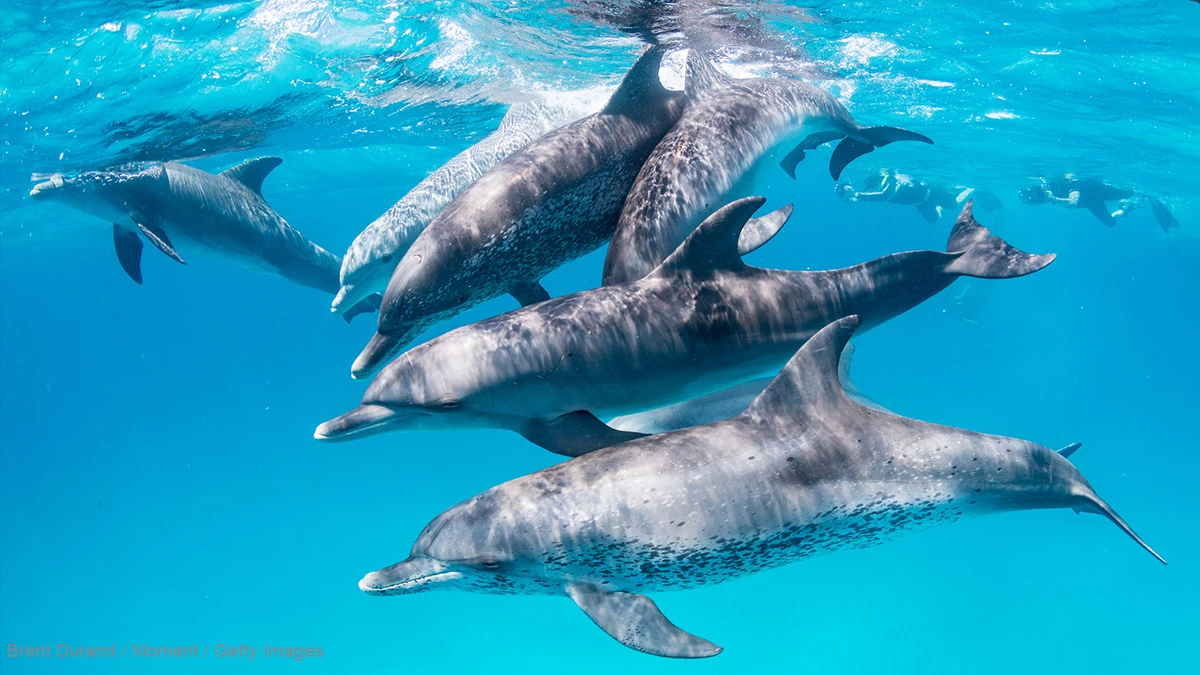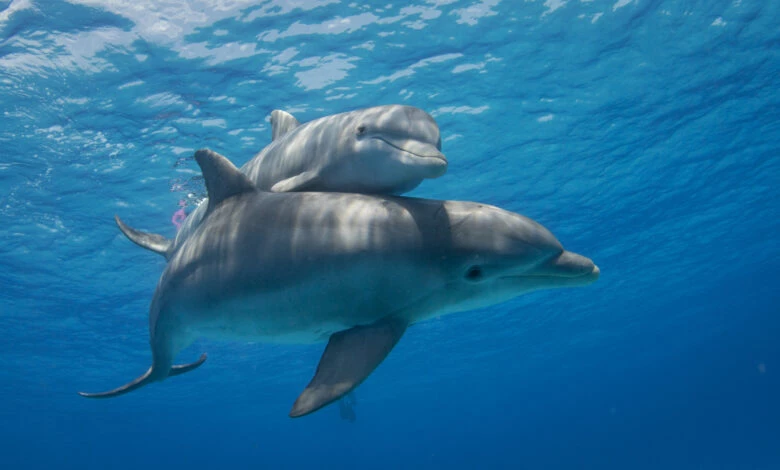Dolphins have the largest alliance network outside of humans, study finds
Martian rock-metal composite shows potential of 3D printing on Mars / We are on track to reach six climate tipping points by 2030
Together with colleagues from the University of Zurich and the University of Massachusetts, the scientists analyzed association and consortship data to model the alliance structure of 121 adult male Indo-Pacific bottlenose dolphins in Shark Bay, Western Australia. Today, their results were published in Proceedings of the National Academy of Sciences (PNAS).
Male dolphins in Shark Bay form alliances of two to three individuals to pursue consortships with individual females. Second-order alliances consisting of four to fourteen unrelated males compete with other alliances for access to female dolphins, while third-order alliances are formed between second-order alliances that cooperate.

Dolphins have the largest alliance network outside of humans, study finds.
Co-lead author Dr Stephanie King, Associate Professor from Bristol's School of BiologicalSciences explained: "Cooperation between allies is widespread in human societies and one of the hallmarks of our success. Once upon a time, it was believed that our species was the only one capable of building strategic, cooperative relationships at multiple social levels, such as trade or military alliances, on a national and international scale.
"Not only have we shown that male bottlenose dolphins form the largest known multilevel alliance network outside humans, but that cooperative relationships between groups, rather than simply alliance size, allows males to spend more time with females, thereby increasing their reproductive success."
Dr Simon Allen, Senior Lecturer at Bristol's School of Biological Sciences, who contributed to the study, said "We show that the duration over which these teams of male dolphins consort females is dependent upon being well-connected with third-order allies, that is, social ties between alliances leads to long-term benefits for these males."
Intergroup cooperation in humans was believed to be unique and dependent on two other characteristics that differentiate humans from our common ancestor with chimpanzees: the evolution of pair bonds and male parental care. "However, our results show that intergroup alliances can emerge without these features, from a social and mating system that is more chimpanzee like" noted Richard Connor, Professor Emeritus at the University of Massachusetts and now affiliated with Florida International University, who co-led the study with Dr King.

Male dolphins in Shark Bay form alliances of two to three individuals to pursue consortships with individual females.
The publication of the significance of third level or intergroup alliances in dolphins in 2022 will have special significance as the team celebrates the 40th anniversary of the beginning of Shark Bay dolphin research in 1982 and the 30th anniversary of their discovery of two levels of male alliance formation, also published in The Proceedings of the National Academy of Sciences in 1992.
Professor Dr. Michael Krützen, an author on the study and Head of the Anthropology Institute at the University of Zurich, added; "It is rare for non-primate research to be conducted from an anthropology department, but our study shows that important insights about the evolution of characteristics previously thought to be uniquely human can be gained by examining other highly social, large-brained taxa."
Dr King concluded: "Our work highlights that dolphin societies, as well as those of nonhuman primates, are valuable model systems for understanding human social and cognitive evolution."
Journal Reference: Richard C. Connor, Michael Krützen, Simon J. Allen, William B. Sherwin, Stephanie L. King. Strategic intergroup alliances increase access to a contested resource in male bottlenose dolphins. Proceedings of the National Academy of Sciences, 2022; 119 (36) DOI: 10.1073/pnas.2121723119
Male dolphins present gifts to attract females (Source: University of Western Australia)
End of content
Không có tin nào tiếp theo
